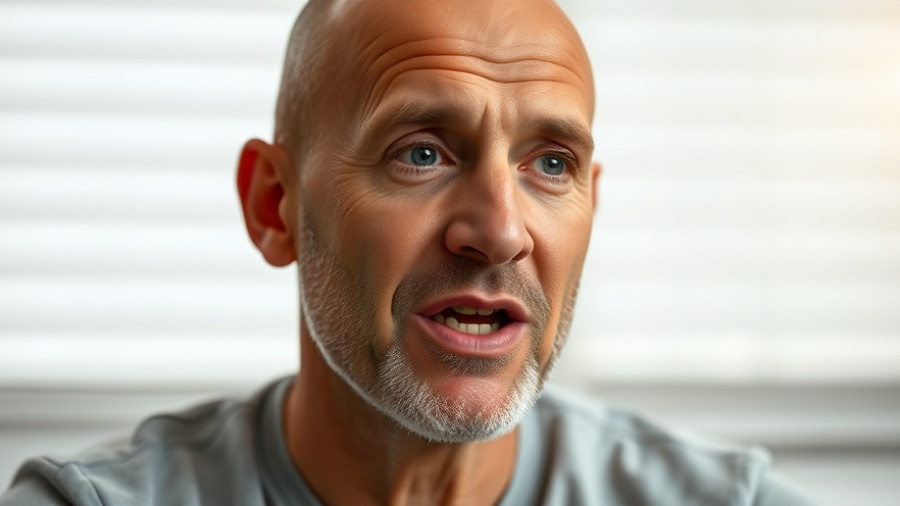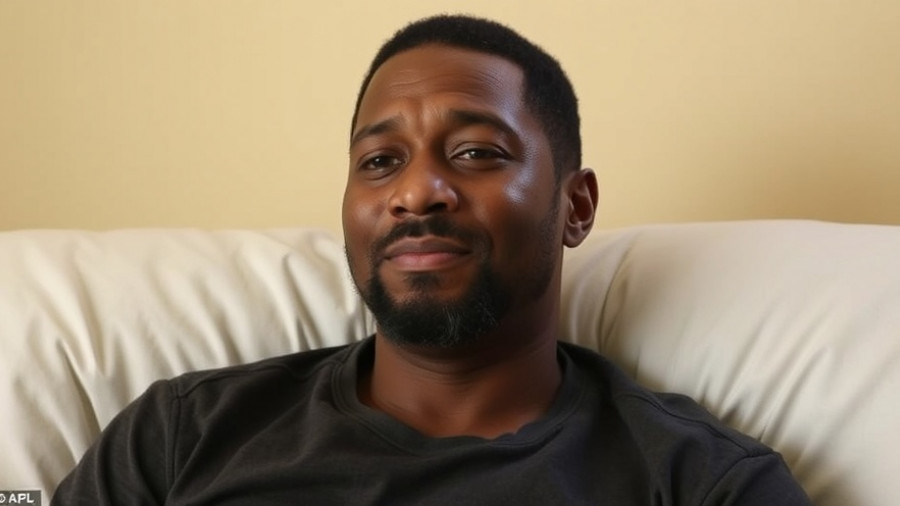
Keto and Schizophrenia: A Personal Journey
In the realm of mental health, stories of recovery often resonate deeply, serving as beacons of hope for many. One compelling narrative that has emerged involves an individual who attributes their recovery from schizophrenia to following a ketogenic diet. This journey not only highlights the potential interplay between nutrition and mental health but also underscores broader themes of resilience and community support.
In 'Keto Cured My Schizophrenia,' we delve into a unique perspective on mental health recovery through dietary changes, igniting a conversation about integrated wellness.
The Science Behind the Keto Diet
The ketogenic diet has gained traction in recent years, primarily as a weight-loss tool. However, emerging research suggests that it may also have a significant impact on mental health. The diet, characterized by low carbohydrates and high-fat intake, is believed to alter energy metabolism in brain cells, potentially helping to stabilize mood and reduce symptoms of mental illnesses like schizophrenia.
While the personal anecdote of someone curing their schizophrenia through dietary changes might seem extraordinary, there is a growing body of studies indicating that nutrition could play a pivotal role in mental well-being. This includes managing symptoms of anxiety, depression, and even post-traumatic stress disorder (PTSD).
Emotional Health and Nutrition
Understanding how our diet affects our emotional health is critical. For many, food serves not just as sustenance but as a building block for mental wellness. Incorporating healthy habits, like a well-balanced diet rich in nutrients, may enhance emotional regulation and reduce the risk of anxiety disorders and depression.
By exploring different therapeutic avenues such as cognitive behavioral therapy (CBT) and mindfulness practices alongside nutritional adjustments, individuals may find a holistic approach that promotes their well-being. Integrating these strategies allows for greater personal growth and self-improvement, fostering a deeper feeling of control over one’s mental health.
Therapy and Its Role in Recovery
While the ketogenic diet may have played a role in one individual's recovery story, it’s essential to recognize that therapy remains a cornerstone of mental health treatment. Various therapeutic modalities, such as dialectical behavior therapy (DBT) and trauma-informed therapy, offer valuable tools for individuals grappling with serious mental health issues. These therapies can help people build emotional resilience, develop healthy coping strategies, and navigate personal challenges effectively.
Furthermore, therapy provides a supportive environment where individuals can explore their feelings, ultimately leading to greater self-compassion and understanding. This holistic approach that marries personal choice, dietary changes, and therapeutic support might pave the way for others seeking similar paths towards recovery.
Breaking the Stigma
As more individuals share their stories of recovery from mental health conditions like schizophrenia, it becomes increasingly important to break the stigma surrounding these issues. Conversations surrounding the potential benefits of dietary interventions and therapeutic approaches can help normalize mental health discussions. It fosters a community where support and empathy take precedence, creating a safe space for individuals to seek help.
Encouragingly, as more stories circulate like that of the keto dietista's experience, it sparks curiosity and opens the door to innovative mental health solutions. It compels researchers and practitioners to consider how a blended approach utilizing both dietary and psychological strategies might lead to better treatment outcomes.
Steps Forward: What Can Individuals Do?
For those interested in exploring holistic approaches to their mental health, consider implementing gradual dietary changes alongside a structured therapy regime. Consult with mental health professionals and dietitians who specialize in this area. Emphasize your personal goals, whether it’s reducing anxiety, managing stress, or improving overall emotional health.
Additionally, engage in self-care practices that promote mindfulness and relaxation techniques. Addressing all aspects of one's well-being—physical, emotional, and psychological—can lead to a more fulfilling recovery journey. Remember, recovery is not a solitary endeavor; communities and support networks can play a vital role in fostering long-term wellness.
As we unpack the relationship between diet and mental health, stories like that of keto curing schizophrenia remind us that recovery paths are as unique as the individuals on them. By embracing diverse perspectives and methodologies, we can nurture healthier mental landscapes—both for ourselves and our communities.
 Add Row
Add Row  Add
Add 




Write A Comment